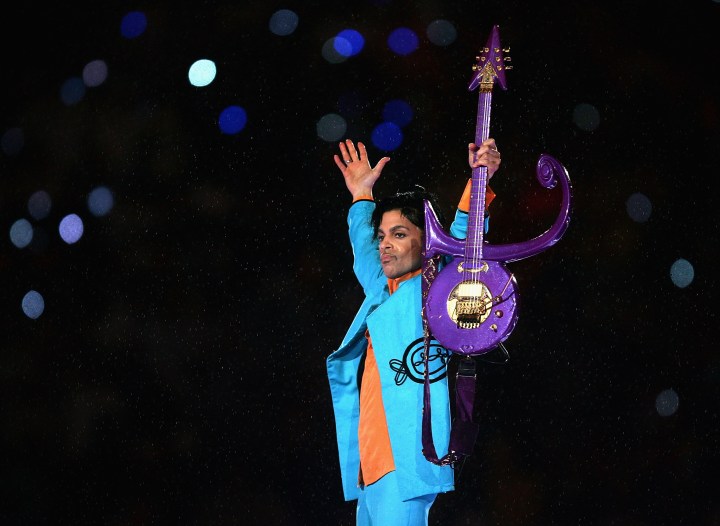
30 years ago, Prince changed the way artists negotiate with the music industry
30 years ago, Prince changed the way artists negotiate with the music industry

This week, the rock star Prince would have turned 65. It’s also been thirty years since the musician changed his name to what he called “an unpronounceable symbol,” which combines the traditional characters for male and female.
“And it has this additional kind of Rococo squiggle in it,” said writer Dan Piepenbring, who collaborated with Prince on his posthumous memoir “The Beautiful Ones.”
Before Prince’s death in 2016, the symbol–known as a glyph–had a lasting effect on the music industry and the way artists define their brands.

The name change came about at a time when Prince was unhappy with his longtime record label.
“While he was still being paid very generously by Warner Brothers, the conditions of that contract, especially as it pertained to how and when and why he could release his music, that those conditions had become kind of onerous,” Piepenbring said. “He felt that he no longer had control over his songs.”
Prince wanted to release them on his own terms.
“He kind of very famously said that ‘if you don’t own your masters, then your masters own you,’ ” said writer and tech entrepreneur Anil Dash, who’s written about Prince. “At the time when he changed his name, he took to shortly thereafter writing the word slave on his face, which is a pretty profound statement for a Black artist to make.”
Prince was also making a point about identity.
“He sort of publicly said Prince is dead,” said Dash. “He literally would talk about Prince in the third person.”
De Angela Duff, an associate vice provost and professor of integrated design and media at NYU, who hosts annual symposia about Prince, said this all reminds her of a particular song Prince covered: “When Will We B Paid?”
“He was constantly on the cutting edge, trying to figure out how to merge art with commerce,” said Duff.
In order to be sure the media could use his new name, floppy disks with the glyph were sent to press outlets.
“It is so distinctly his own that magazines could not reproduce it without his help,” said Piepenbring.
The use of a symbol was also mischievous in how it played with type, which Piepenbring notes was both prescient and on brand for Prince.
“Already through the ’80s, he would abridge you to ‘u’,” said Piepenbring. “He would abridge for to the numeral 4. He loved to communicate in this kind of truncated way that prefigured text speak.”
Prince’s name change also affected how other musicians do business with their labels.
“Jay Z, Rihanna — these are artists who now insist on owning their own masters,” Piepenbring explained. “Without Prince’s name change in 1993, you don’t really get to that conversation as quickly.”
NYU’s Duff points out Prince was very vocal about ownership.
“He was preaching this to almost anybody he could talk to in the music industry,” said Duff.
The artist did eventually revert to using his given name.
He also gained control of his masters in 2014. That same year, at a concert at his estate, Paisley Park, he performed a song he’d written years before, embracing both that ownership and his identity.
The song? “What’s My Name.”
There’s a lot happening in the world. Through it all, Marketplace is here for you.
You rely on Marketplace to break down the world’s events and tell you how it affects you in a fact-based, approachable way. We rely on your financial support to keep making that possible.
Your donation today powers the independent journalism that you rely on. For just $5/month, you can help sustain Marketplace so we can keep reporting on the things that matter to you.











